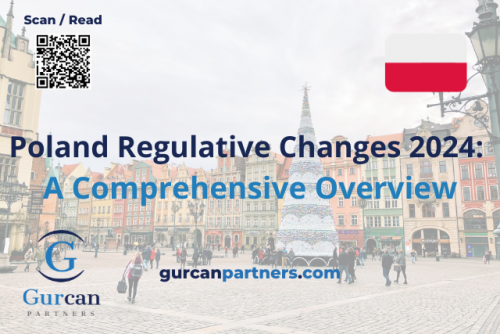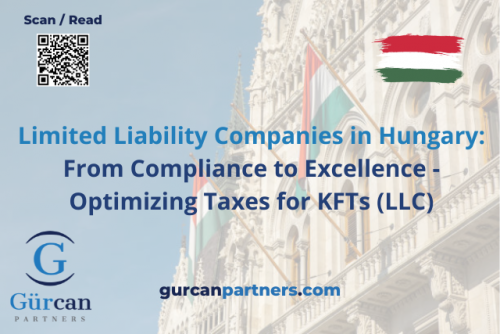
Public Procurement Law In Serbia
In this article, we will cover the basics of public procurement law in Serbia with the necessary details.
The new Serbian Public Procurement Law was enacted on December 23, 2019. (RS Official Gazette No 91/2019), hereinafter: the New Law). The New Law entered into force on January 1, 2020, and commenced to be applied on July 1, 2020. The principal idea of the legislator was to harmonize Serbian Public Procurement Law with Directive 2014/24/EU of the European Parliament and of the Council of 26 February 2014 on public procurement and repealing Directive 2004/18/EC and Directive 2014/25/EU of the European Parliament and of the Council of 26 February 2014 on procurement by entities operating in the water, energy, transport, and postal services sectors and repealing Directive 2004/17/EC.The New Law was expected to provide for more transparency in public procurement procedures, create a more favorable framework for competition as well as provide for an improved quality of goods to citizens.
Public Procurement Law In Serbia
- Exceptions in the application of the New Law can be challenged before the Republic Commission for Protection of Bidders’ Right in Public Procurements. The request for annulment of the awarded contract shall be submitted along with a request for protection of the right. In case the Commission annuls the contract, it shall sentence the contracting authority to a fine in the amount up to 30% of the awarded contract;
2. Financing procurements under donation is not provided as an exception in the application of the New Law;
3. New thresholds for application of the Law are envisaged as follows:
a) Above estimated value of RSD 1.000.000, 00 for procurement of goods and services;
b) Above estimated value of RSD 3.000.000, 00 for procurement of works;
c) Above estimated value of RSD 15.000.000, 00 for procurement of goods and services and above the estimated value of RSD 650.000, 00 for procurement of works for diplomatic missions and diplomatic and consular office abroad;
d) Above-estimated value RSD 15.000.000, 00 for procurement of social and other special services conducted by the public contracting authority and above estimated value RSD 15.000.000, 00 for public procurements conducted by the sectorial contracting authority.
4. The contracting authorities shall publish amendments to the public procurement plan on the Public Procurement Portal and their website within ten days of its amendment;
5. A contracting authority can limit the number of lots to be awarded to one bidder even in the case when the bidder can submit offers for several or all lots, under the condition that the maximum number of lots per bidder is determined in the contract notice, invitation to confirm interest, or invitation to submit a tender;
6. All communication and exchange of documents in public procurement procedures shall be performed electronically on the Public Procurement Portal;
7. The Law introduces a new public procurement proceeding in the case when the contracting authority needs innovative products, services, or works that are available on the market – partnership for innovation;
8. Negotiation procedure without issuing the public invitation can be conducted regarding new repetitive services and works awarded to the prior bidder with whom the basic contract is concluded and procurement of goods for research purposes, experimenting, examination, or development;
9. Negotiation procedure/Negotiated procedure with publication of contract notice/ with a public invitation can be conducted only by sectorial contracting authorities/contracting entity;
10. The period of validity of a Framework agreement cannot last more than four years (this period does not apply to contracts concluded on the ground of framework agreement);
11. Sectorial contractual authorities may establish and maintain a system of qualification for companies;
12. The Law introduces new services subject to public procurements – social and other special services for which a less formal regime is established (certain health services, social services, education services, etc.);
13. Collateral for the seriousness of bids in public procurement procedures is reduced to 3% of the value of offer (VAT excluded);
14. Terms for contracting authorities to provide clarifications regarding tender documents are extended;
15.Contracting authorities may publish on their profile prior information notice to inform potential bidders about their intention to execute a particular public procurement procedure or to reduce terms for submission of offers, while sectorial contracting authorities may publish on their profile periodic indicative notices for the same purposes;
16. Bidders are not obliged to provide documents to prove the fulfillment of conditions required for participation in the tender procedure, however, the contracting authority is obliged to demand from selected bidder to submit documents proving fulfillment of requirements to participate in tender procedures for which estimated value is above RSD 5.000.000, 00;
17. Bidder may prove tender conditions by capacities of subcontractors (financial, economic, HR, references, and technical requirements) – not only as single or joint bidders, while, on the other side, technical requirements (technical equipment) can be proved by capacities of other companies which are not jointed to bidder or subcontractors);
18. The main criteria for awarding the contract must be economically the most favourable offer;
19. Awarded contract may be amended due to unpredicted circumstances, and the contractual party may be changed as well due to changes of legal status on the part of the contractual party;
20. Scope of the awarded contract may be changed for less than 10% for goods and services and 15% for works, and the value of change must be lesser than RSD 15.000.000, 00 for goods and services and RSD 50.000.000, 00 for works;
21. Subcontractors can be replaced under certain conditions;
22. Terms for submission of the request for protection of right (“request”) are amended;
23. Foreign applicants must appoint a proxy for receipt of documents;
24. The applicant must submit the evidence on paid fee along with the request, otherwise, the request shall be rejected.

 Türkçe
Türkçe Deutsch
Deutsch Magyar
Magyar Polski
Polski Français
Français Português
Português العربية
العربية Čeština
Čeština Русский
Русский Eesti
Eesti 中文 (中国)
中文 (中国) Српски језик
Српски језик







